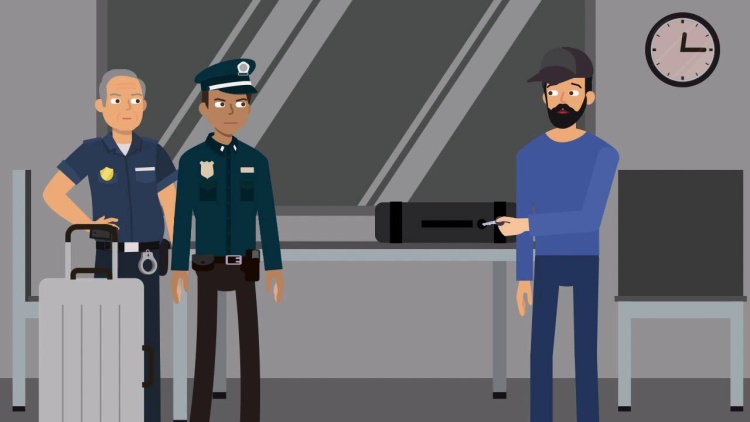Florida v. Royer
United States Supreme Court
460 U.S. 491, 103 S. Ct. 1319, 75 L. Ed. 2d 229 (1983)

- Written by Sean Carroll, JD
Facts
Royer (defendant) bought a one-way plane ticket and checked luggage under a fake name. In the airport concourse, law-enforcement agents stopped Royer because they suspected he was a drug courier. Without verbally consenting, Royer gave the officers his ticket and identification. The officers kept the documents and asked Royer to come to a small room 40 feet away. Royer followed. The officers then, without Royer’s consent, retrieved his luggage from the airline. Royer did not answer the officers when they asked to search the luggage; he did, however, unlock one of the suitcases. Royer permitted the officers to pry open the other. Drugs were found in both bags. Royer was charged with felony drug possession. Royer moved to suppress the evidence found in the luggage. The trial court denied the motion on the ground that Royer consented to search. The court concluded the search would have been reasonable without consent or a warrant, because the plane was about to depart. Royer was convicted, and he appealed the denial of his motion. The Florida District Court of Appeal, en banc, reversed, concluding Royer’s involuntary detention without probable cause violated Terry v. Ohio, 392 U.S. 1 (1968). Florida petitioned the United States Supreme Court for certiorari, which was granted.
Rule of Law
Issue
Holding and Reasoning (White, J.)
What to do next…
Here's why 907,000 law students have relied on our case briefs:
- Written by law professors and practitioners, not other law students. 47,100 briefs, keyed to 996 casebooks. Top-notch customer support.
- The right amount of information, includes the facts, issues, rule of law, holding and reasoning, and any concurrences and dissents.
- Access in your classes, works on your mobile and tablet. Massive library of related video lessons and high quality multiple-choice questions.
- Easy to use, uniform format for every case brief. Written in plain English, not in legalese. Our briefs summarize and simplify; they don’t just repeat the court’s language.





